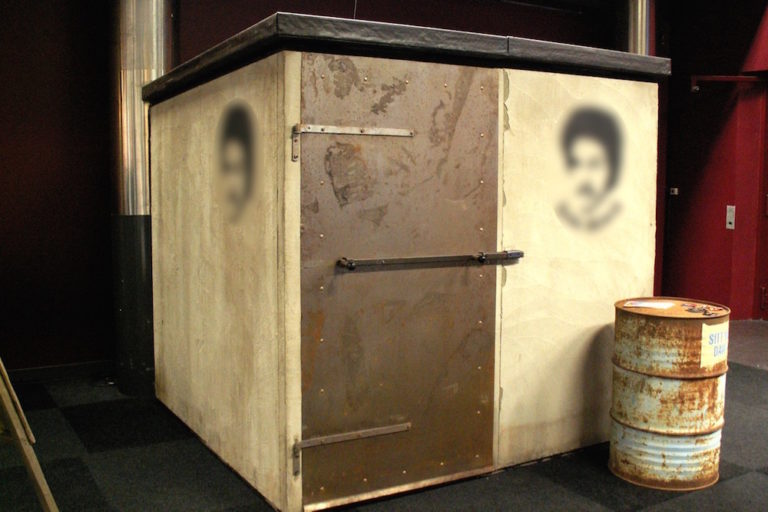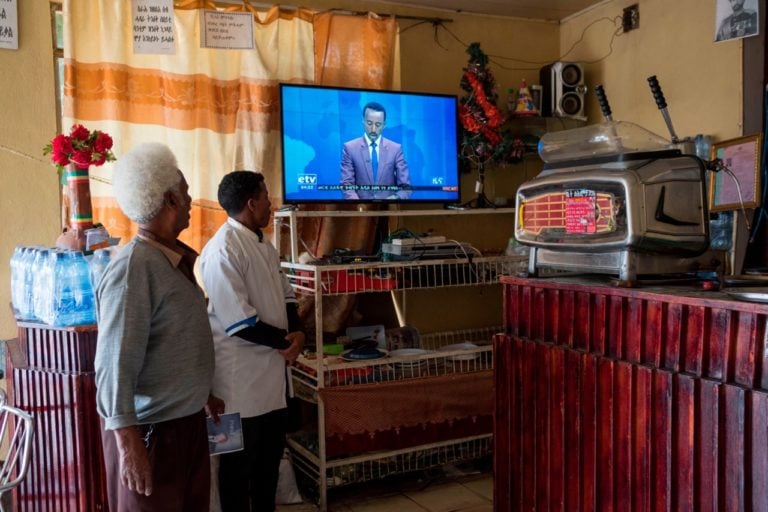(RSF/IFEX) – RSF has asked the Eritrean authorities to release all the journalists who are currently detained in the country. Two representatives from the organisation, including Secretary-General Robert Ménard, sent this message to the Eritrean ambassador in Paris, Hanna Simon, during a 26 September 2001 meeting. The organisation also expressed its wish to go to […]
(RSF/IFEX) – RSF has asked the Eritrean authorities to release all the journalists who are currently detained in the country. Two representatives from the organisation, including Secretary-General Robert Ménard, sent this message to the Eritrean ambassador in Paris, Hanna Simon, during a 26 September 2001 meeting. The organisation also expressed its wish to go to Eritrea as soon as possible to meet with the president and the jailed journalists. Questioned about the reasons for these arrests, Simon told RSF that “information published in these newspapers was unfounded and defamatory.” She added that, “because of these journalists, it became chaos in the country.” Finally, she said she had no confirmation of arrests of journalists in her country.
According to information obtained by RSF, since 23 September, police in Asmara have arrested at least ten journalists from the private press. Other journalists’ homes have been searched by police, and more arrests are expected in the coming days. The exact reasons for the arrests and the journalists’ places of detention are unknown. The ten detained journalists are Yusuf Mohamed Ali, editor-in-chief of “Tsigenay”, who was already detained for several weeks in October 2000, Said Abdulkader, editor-in-chief of “Admas”, Mattewos Habteab, editor-in-chief of “Meqaleh”, who had previously been arrested several times in recent months, Selayinghes Beyene and Dawit Habtemichael, reporters for “Meqaleh”, Aaron Berhane, editor-in-chief of “Setit”, Medhanie Haile, assistant editor-in-chief of “Keste Debena”, Emanuel Asrat and Wedi Ade, from “Zemen”, and freelance photographer Seyoum Fsehaye.
At least two journalists, Milkias Mihretab, editor of “Keste Debena”, and Semere Teazaz, a reporter with the same newspaper, have left the country for Sudan. Mihretab was imprisoned in harsh conditions between October 2000 and February 2001.
RSF recalls that on 18 September, private newspapers announced that further to a government decision, they were printing their last issues. Since 19 September, no private newspaper has been published. The private press’ indefinite suspension took place on the same day as the arrest of seven former ministers and generals in Asmara.
In a 19 September response to an RSF statement, the Eritrean authorities contested the fact that censorship existed in their country. RSF can confirm, however, that until November 1999, journalists had to present every article to a censorship office at the Ministry of Information. RSF has gathered indisputable documents and testimonies to that effect. The independent press’ success only became noticeable after censorship was lifted.


